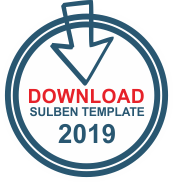Meningkatkan Gairah Belajar PJOK Siswa Pasca Pandemi Covid-19
 ), M Ridwan(2), Afrizal S(3), Eko Purnomo(4), Vega Soniawan(5),
), M Ridwan(2), Afrizal S(3), Eko Purnomo(4), Vega Soniawan(5), (1) Universitas Negeri Padang
(2) Universitas Negeri Padang
(3) Universitas Negeri Padang
(4) Universitas Negeri Padang
(5) Universitas Negeri Padang
 Corresponding Author
Corresponding Author
Copyright (c) 2020 Eddy Marheni
DOI : https://doi.org/10.24036/sb.0590
Full Text:
 Language : id
Language : id
Abstract
Belajar dari pengalaman virus yang telah terjadi sebelum adanya Covid-19. Telah banyak ditemukan ramuan atau sentuhan yang telah dilakukan untuk mengatasi dan meningkatkan kembali gairah atau motivasi siswa untuk belajar di sekolah. Covid-19 juga diprediksi juga akan meninggalkan beberapa masalah yang sama dengan virus-virus sebelumnya. Hal tersebut harus cepat diatasi untuk mengurangi dampak depresi atau bahkan kembali meningkatkan minat belajar untuk para siswa. Metode pelaksanaan antara lain menggunakan pendekatan pembelajaran diskusi dan kerja kelompok, pengalaman, game/permainan dan manajemen penugasan. Pelaksanaan pengabdian ini akan mengikutsertakan guru PJOK tingkat yang ada di Kabupaten Padang Pariaman. Hasilnya para guru sangat terbantu dengan adanya pengabdian ini, kemudian pelaksanaannya pun juga berjalan dengan baik. Hasil menunjukkan opara guru dapat dengan mudah menerapkan materi yang didapatkan kepada siswa. Diakhir kegiatan para guru berharap dapat dilaksanakan pengabdian kembali pada masa yang akan datang.
Keywords
References
Banfield, J., and B. Wilkerson. 2014. “Increasing Student Intrinsic Motivation and Self-Efficacy through GamificationPedagogy.” Contemporary Issues in Education Research (CIER) 7 (4): 291–298.
Hayward P. Andres (2019) Active teaching to manage course difficulty and learning motivation, Journal of Further and Higher Education, 43:2, 220-235, DOI: 10.1080/0309877X.2017.1357073
Hodgson, Y., R. Benson, and C. Brack. 2015. “Student Conceptions of Peer-Assisted Learning.” Journal of Further & Higher Education 39 (4): 579–597.
Katayama, A. D., R. N. Shambaugh, and T. Doctor. 2005. “Promoting Knowledge Transfer with Electronic Note Taking.” Teaching of Psychology 32 (2): 129–131.
Lin, L., R. K. Atkinson, W. C. Savenye, and B. C. Nelson. 2016. “Effects of Visual Cues and Self-Explanation Prompts: Empirical Evidence in a Multimedia Environment.” Interactive Learning Environments 24 (4): 799–813.
Locke, E. A., and G. P. Latham. 2002. “Building a Practically Useful Theory of Goal Setting and Task Motivation.” American Psychologist 57 (9): 705–717.
Marheni, E., Purnomo, E., & Intan Cahyani, F. (2019). The Role of Motivation in Increasing Achievement: Perspective Sports Psychology. 7(Icssh 2018), 59–62. https://doi.org/10.2991/icssh-18.2019.14
Marheni, E., S, A., & Purnomo, E. (2019). Application of Character Building with Physical Education (CBPE). Suluah Bendang: Jurnal Ilmiah Pengabdian Kepada Masyarakat, 20(1), 46. https://doi.org/10.24036/sb.0400
Mayer, R. E., H. Lee, and A. Peebles. 2014. “Multimedia Learning in a Second Language: A Cognitive Load Perspective.” Applied Cognitive Psychology 28 (5): 653–660.
Moreno, R. 2007. “Optimizing Learning from Animations by Minimizing Cognitive Load: Cognitive and Affective Consequences of Signaling and Segmentation Methods.” Applied Cognitive Psychology 21 (6): 765–781.
Orsini, C., P. Evans, V. Binnie, P. Ledezma, and F. Fuentes. 2016. “Encouraging Intrinsic Motivation in the Clinical Setting: Teachers’ Perspectives from the Self-Determination Theory.” European Journal of Dental Education 20 (2): 102–111.
Pedra, A., R. E. Mayer, and A. L. Albertin. 2015. “Role of Interactivity in Learning from Engineering Animations.” Applied Cognitive Psychology 29 (4): 614–620.
Reveve, J., and W. Lee. 2014. “Students’ Classroom Engagement Produces Longitudinal Changes in Classroom Motivation.” Journal of Educational Psychology 106 (2): 527–540.
Wajdi, M. B. N., Kuswandi, I., Al Faruq, U., Zulhijra, Z., Khairudin, K., & Khoiriyah, K. (2020). Education Policy Overcome Coronavirus, A Study of Indonesians. EDUTEC: Journal of Education and Technology, 3(2), 96-106.
Wetzels, S. J., L. Kester, J. G. van Merrienboer, and N. J. Broers. 2011. “The Influence of Prior Knowledge on the Retrieval-Directed Function of Note Taking in Prior Knowledge Activation.” British Journal of Educational Psychology 81 (2): 274–291.
Yenan Wang, Yu Di, Junjie Ye & Wenbin Wei (2020) Study on the public psychological states and its related factors during the outbreak of coronavirus disease 2019 (COVID-19) in some regions of China, Psychology, Health & Medicine, DOI: 10.1080/13548506.2020.1746817
Refbacks
- There are currently no refbacks.
Copyright (c) 2020 Eddy Marheni

This work is licensed under a Creative Commons Attribution 4.0 International License.







